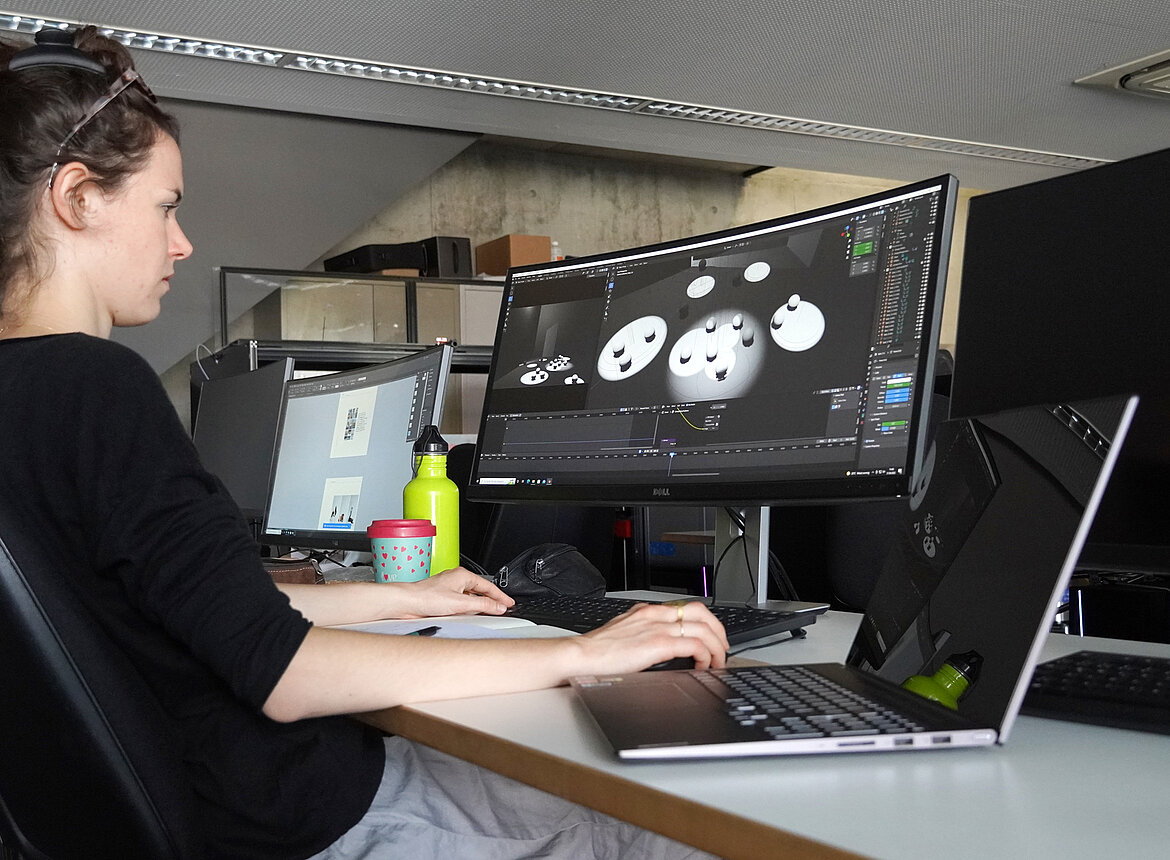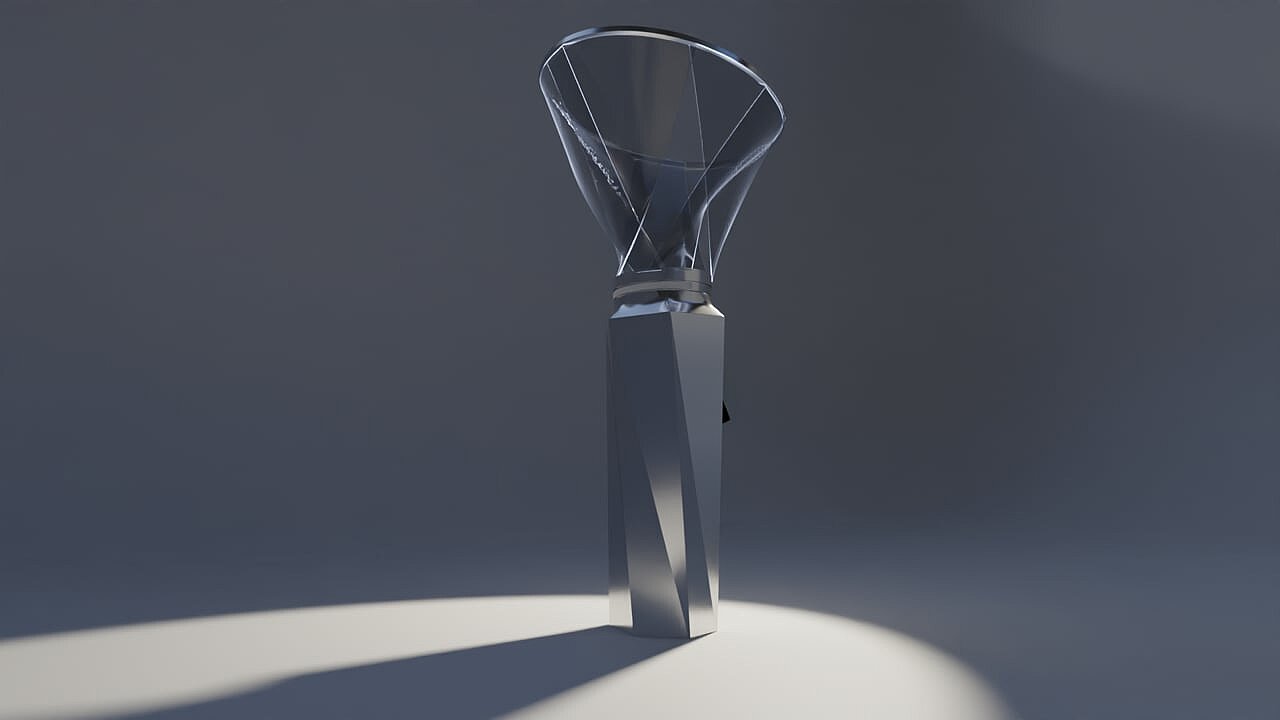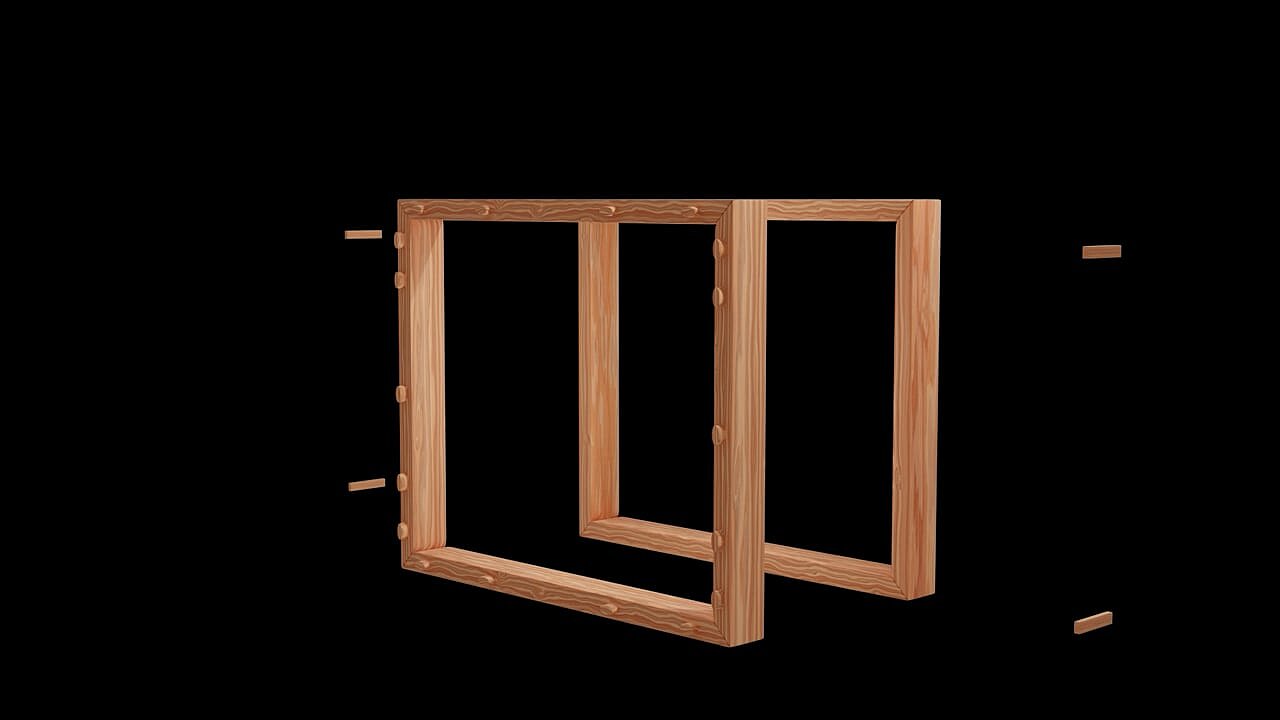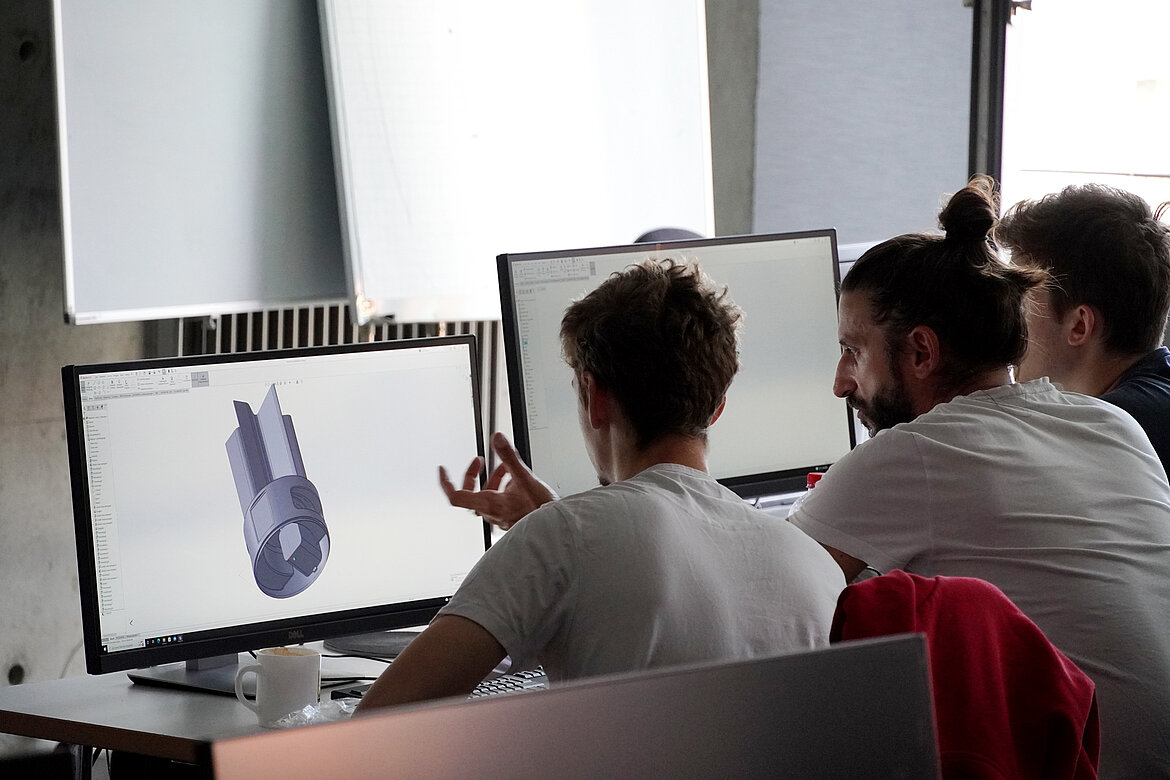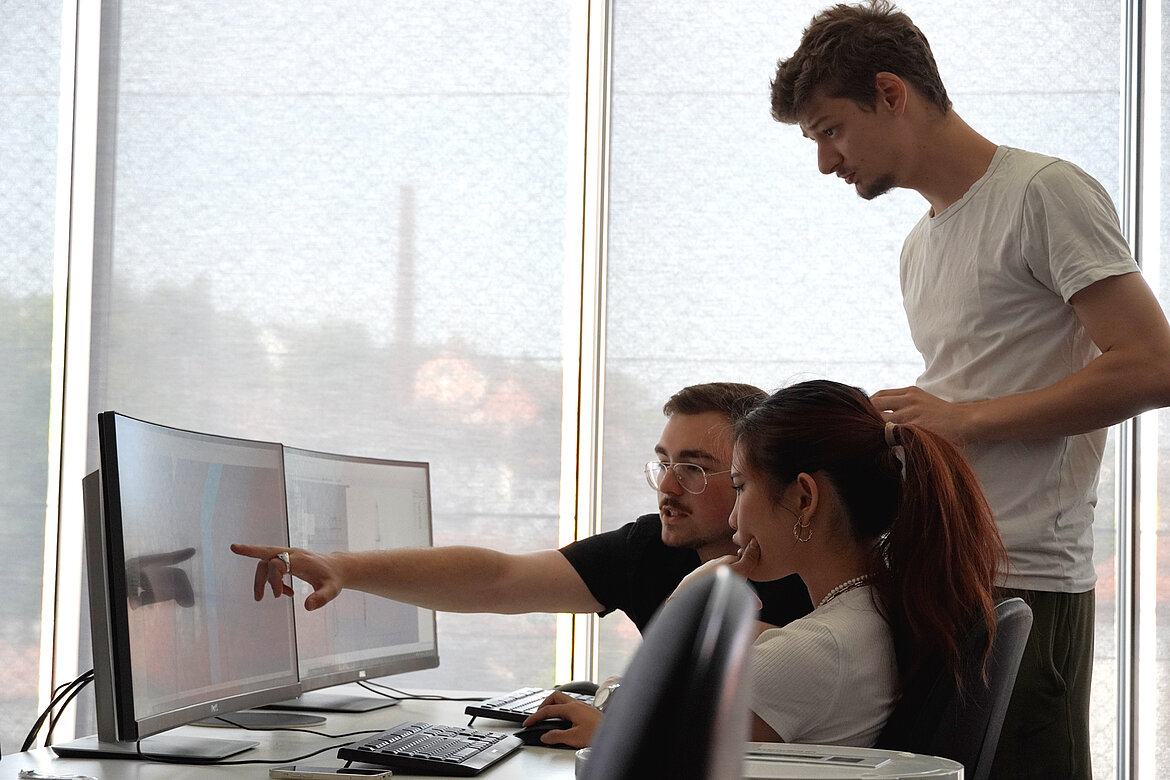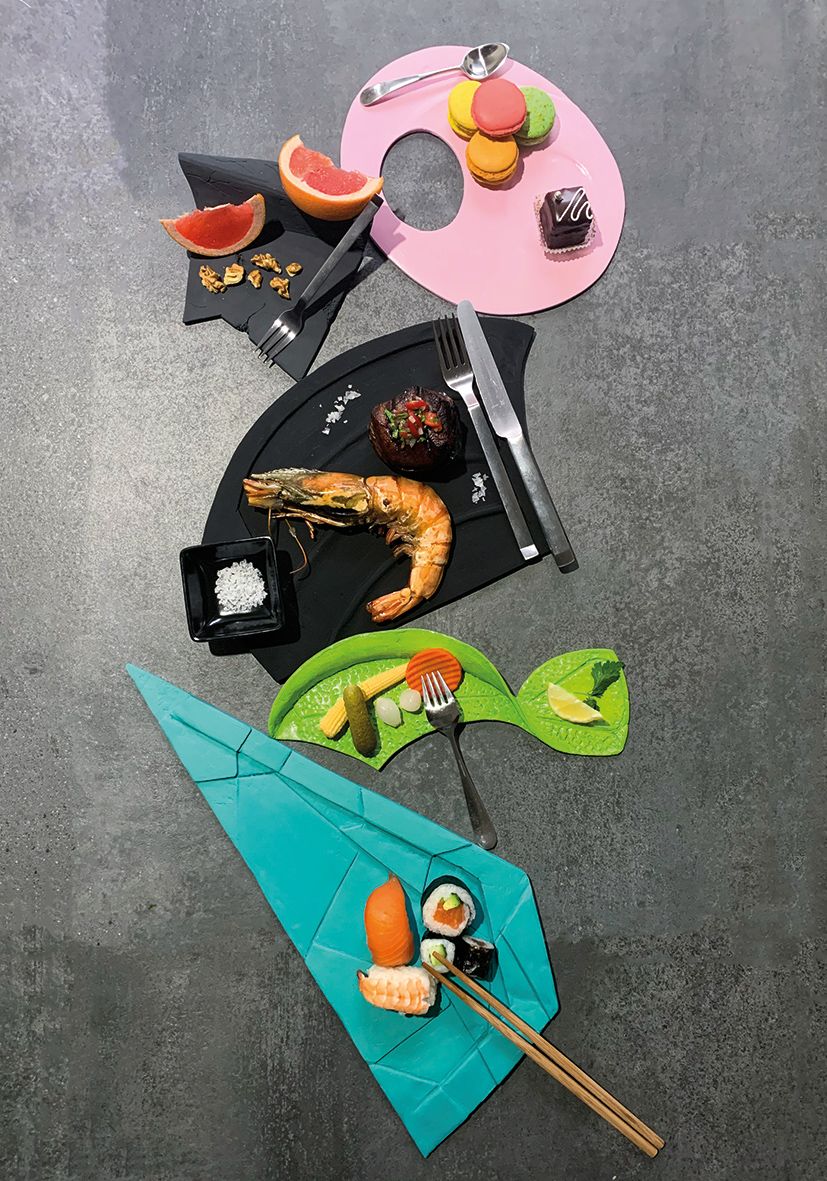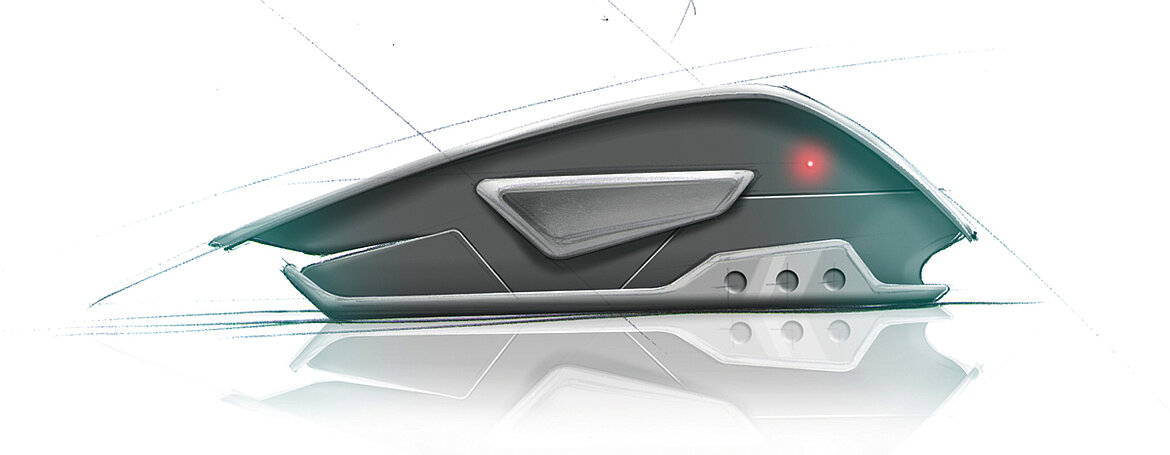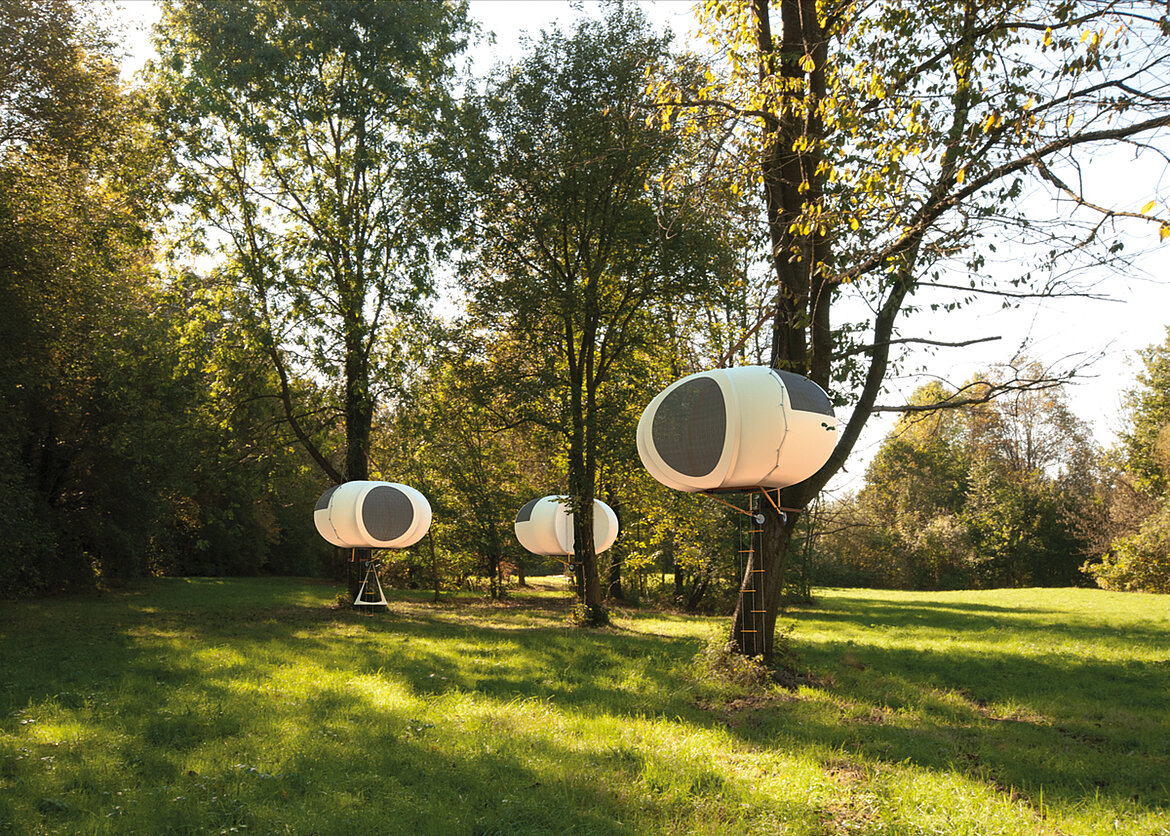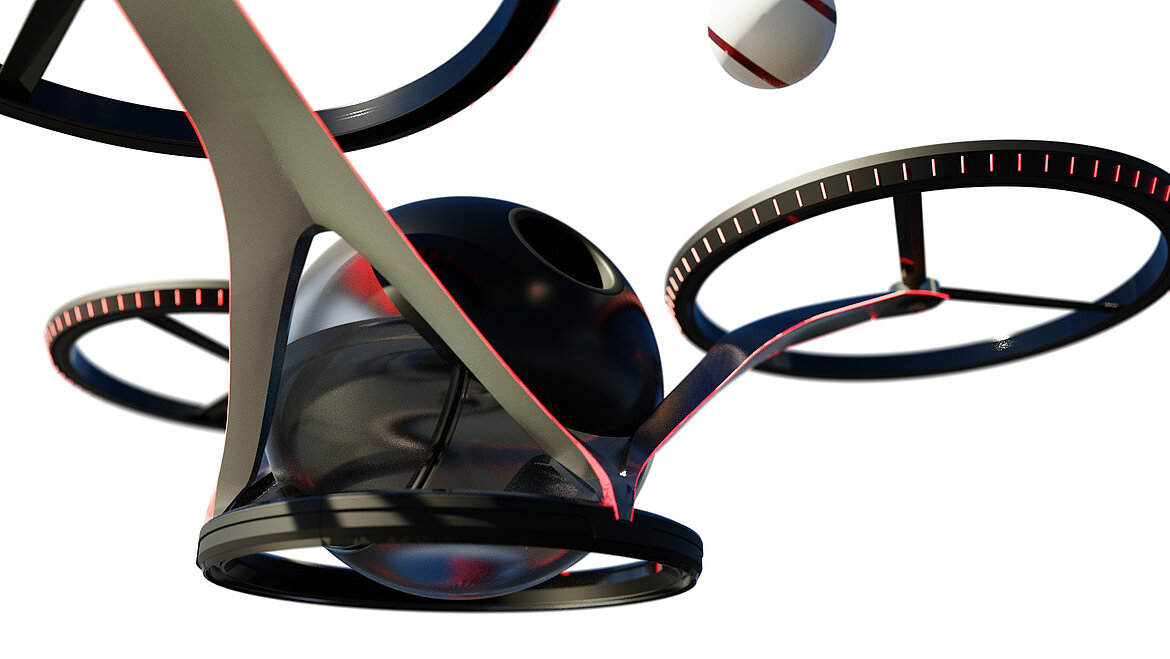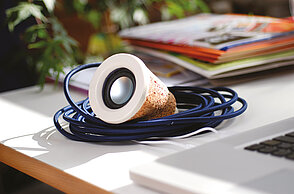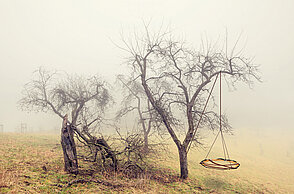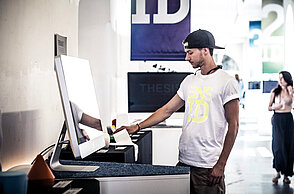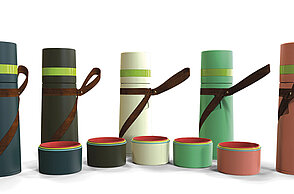We want to enable our future industrial designers to work independently and innovatively and guide them to develop their creative potential backed up by sound knowledge. The basis for this is laid by the teaching of artistic design, art, cultural and media sciences.
We impart an understanding of entrepreneurial contexts, brands and marketing as well as the necessary legal foundations. In addition, technology and engineering aspects of product development, ergonomics and human-machine interface are part of the curriculum.
Our students learn to carry out design projects independently and with clearly defined time and result targets, we familiarize them with methods of information procurement, development and documentation of solution steps. Modern design, presentation and working techniques also quickly become part of their repertoire. Theoretical knowledge is tested in practical project work, and networked work as well as the ability to work in a team are trained in interdisciplinary courses, which are an integral part of the training.
Since especially in the field of industrial design the representation of complex ideas by means of scribbles, renderings, technical sketches and CAD models, as well as the transfer of technical data is of great importance, these areas are taught in detail and practically by specialists. Our school also has excellently equipped workshops and production machines that enable design ideas to be implemented and tested directly as visual models.
Interdisciplinary work is explicitly encouraged and also promoted through cooperation with renowned company partners and universities. In international comparison, German Industrial Design and the education of its students have an outstanding reputation. The Industrial Design program in Pforzheim has a great tradition, first-class connections and cooperations, and successfully demonstrates its capabilities every semester in a large show of work.
Focus CLASSIC and DIGITAL
The world works and designs digitally and we also teach these skills in our Industrial Design course.
In addition to our training in the digital CNC workshop, we offer an analog add-on:
If you want to focus on furniture and interior design from the 3rd semester onwards and also build these larger prototypes yourself, choose the workshop add-on. With this focus, you can make full use of our carpentry workshop - with a planing machine, belt sander, circular saw and much more. To use the carpentry workshop, you need a 6-month pre-study internship.
Industrial Design with focus DIGITAL:
- No pre-study internship required
- The course for using the digital CNC workshop is part of the 2nd semester
- Use of the digital CNC workshop (CNC, 3D printing, laser cutter, etc.)
Industrial Design with focus CLASSIC, with workshop add-on:
- Prerequisite is a 6-month internship (before the first semester)
- In addition to the digital CNC workshop, you have access to the carpentry workshop (planer, belt sander, circular saw, etc.) so that you can produce large-format prototypes yourself
- The workshop course for access to the carpentry workshop is part of the 3rd semester
Curriculum Industrial Design
(simplified version)
1st semester
Project I - Form & Semantics, introduction to manual design model building, design basics, artifacts and methodology
2nd semester
Project II - Product development and design process, introduction to digital model making processes (3D printing, CNC machining), design drawing, CAD introduction
3rd semester
Project III - Original material, symbolism, character, materiality, introduction to manual and mechanical woodworking, engineering, presentation techniques, critical thinking
4th semester
Project IV - Visualization and Impact, Creative Economy, Interdisciplinary Project Work, Selection of Specialist Specializations
5th semester
Practical semester (internship)
6th semester
Project V - Zeitgeist, trend and holism, creative economy, UX design, interdisciplinary project work, selection of specializations
7th semester
Bachelor's thesis
Course of studies
Design is not possible without a deep understanding of function and technical possibilities in the self-image of the course. Design theory, manufacturing technology, materials technology and innovative technical possibilities are therefore covered in detail. However, despite all the specialist knowledge, the focus is on applicability to the daily tasks of the designer - the course content is practical and meets the requirements of working as an industrial designer. The close network, the industry contacts and the projects carried out together with companies enable the course of studies to train designers in a way that is up-to-date and practical for industry.
Industrial Design at Pforzheim University offers in-depth knowledge, particularly with regard to the human-machine / human-environment interfaces, and carries out practice-oriented research and projects. Ergonomics and usability are as much in the foreground as averting risks, increasing efficiency and sustainability in terms of the environment and individual health. Joint projects with partner universities, projects with industry and interdisciplinary work within the university enable an intensive exchange and a high standard of education.
In the projects, independent design approaches, form languages and solution strategies are developed and implemented with the help of the design tools learned. The tasks of the projects are always practice-oriented, cooperation with companies, institutions and / or other departments is desired. In the project work, the major design project of each semester, new product concepts are developed and implemented in design on the basis of intensive research and analysis.
The course covers all phases of the design process from planning, conception and design through to realization. Interdisciplinary projects with other programs at the university (engineering, business administration and law) or with partners from industry train communication skills, interdisciplinary work and the ability to work in a team. Short projects with major design companies and special short projects round off the course.
The internship semester in the 5th semester is an integral part of the course, it is supervised by the course and flanked by supporting courses. During the practical semester, students gain practical insights into their future professional life. He/she works actively in companies on design-related tasks and documents the results. A stay abroad during the course is expressly encouraged, as this provides students with invaluable experience, broadens their perspective and refines their creative approach.
Applicants need a good spatial and perspective understanding, drawing skills, an interest in materials and materials, but above all enthusiasm for intelligently designed products. Skilled craftsmanship and previous knowledge of working with metals, plastics and wood are useful, but are also taught in the internships.

